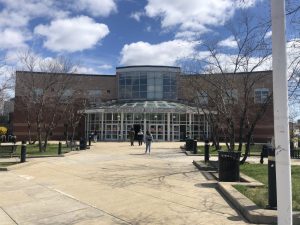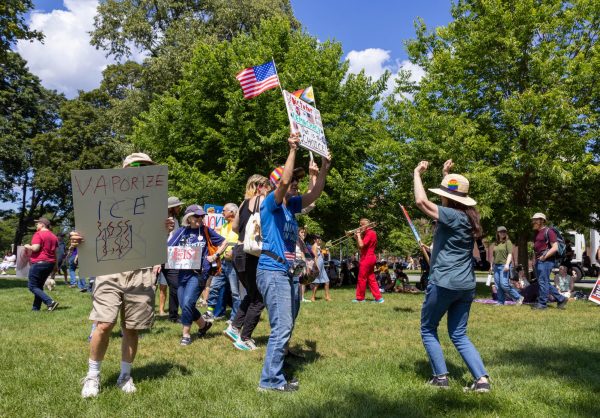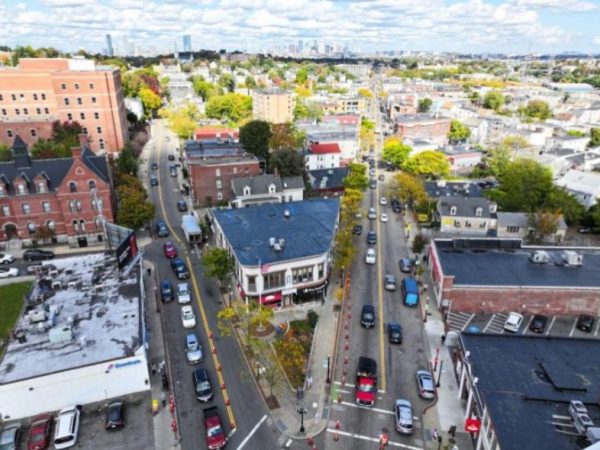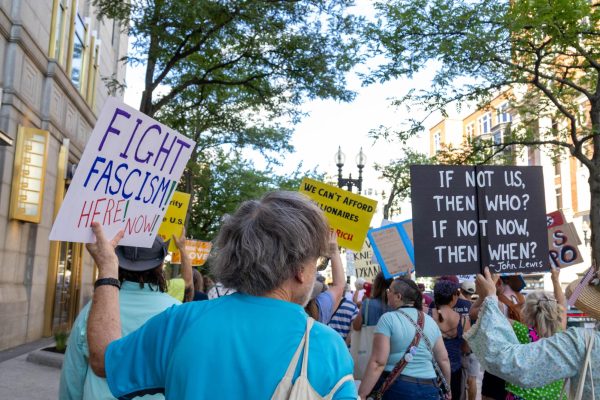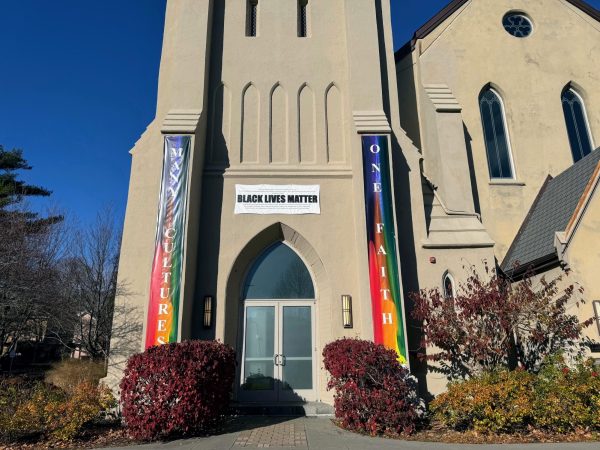Boston-based grassroots union of rideshare drivers fights for adequate benefits and bargaining rights
A Boston-based grassroots union of rideshare drivers are fighting to pass a bill of rights in the State House that would extend collective bargaining rights, coverage of work-related expenses, paid sick leave and overtime — equal to regular Massachusetts employees — to rideshare drivers.
During the summer of 2018, when Felipe V. Martinez used to drop Uber customers at the Boston Logan airport lot, he had warm encounters with a group of drivers who shared his frustration over Uber and Lyft’s rate cuts.
Uber says they reduce prices seasonally to entice customers to use the service but many drivers say they lose money when Uber lowers prices for customers.
To organize a meeting to discuss the consequences of rate cuts and unhealthy working conditions, Martinez started handing out flyers in the airport lot. To his surprise, many drivers saw the flyers and contacted him to join the meeting.
“We met at Fresh Pond in Cambridge to discuss [the consequences] of rate cuts and how to tackle it,” said Martinez. “It was so inspiring. Around 100 drivers came to the meeting to fight for our basic [drivers] rights.”
That meeting led to drafting of a bill of rights, calling for the unionization of drivers, improved pay and better protections, which ultimately morphed into the Boston Independent Drivers Guild.
Ultimately in April, the Boston Drivers Guild filed “An Act Establishing a Rideshare Driver Bill of Rights,” a petition for collective bargaining rights, coverage of work-related expenses, paid sick leave and overtime equal to regular Massachusetts employees.
The bill was filed to take action against the Uber and Lyft bill which does not offer drivers enough pay or protections as it designates them as independent contractors.
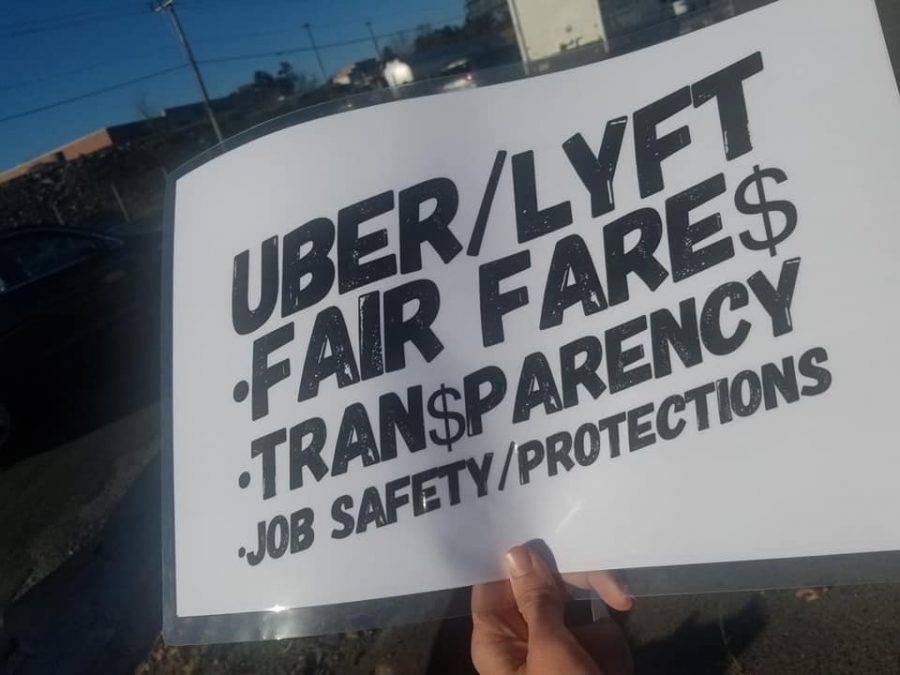
However, Boston Drivers Guild are still looking for legislatures to sponsor their own bill.
Henry De Groot, a Boston-based driver and a board member of the Boston Drivers Guild, said he believes that every driver should be able to live and work with dignity.
“You wake up one day and you go to drive and it says, in order to sign on you must accept this 30-page contract and most drivers [skip reading] the whole contract,” said De Groot. “And in that contract, there is the rate cut.”
Uber and Lyft drivers are, most often unknowingly, signing up for the hidden arbitration agreement which is included in the 30-page contract to sign up for work, said Labor Attorney Shannon Liss-Riordan, who is trying to get compensation from rideshare companies for drivers who have suffered from the rate cuts.
“These companies frequently update the contract, to which the drivers are forced to accept in order to continue working,” said Liss-Riordan.
One of the reasons why companies like Uber and Lyft are able to keep lowering drivers’ rates, advocates like De Groot say, is because rideshare drivers are misclassified as independent contractors, there is no rate floor or minimum wage.
De Groot said drivers need 46 cents a minute and $1.33 a mile to earn minimum wage and reimbursement for their expenses. Currently, they are being paid 28 cents a minute and 66 cents a mile on average. “Drivers are working above 40, and up to 80 hours a week to bring food to their table,” De Groot said.
Full time employees are guaranteed minimum wage, paycheck every week, time-and-a-half when they work above 40 hours a week and earned sick times. Independent contractors aren’t guaranteed these important protections.
By classifying the drivers as independent contractors, these companies have been able to avoid all wage protections for them, so they are not guaranteed minimum wage anymore.
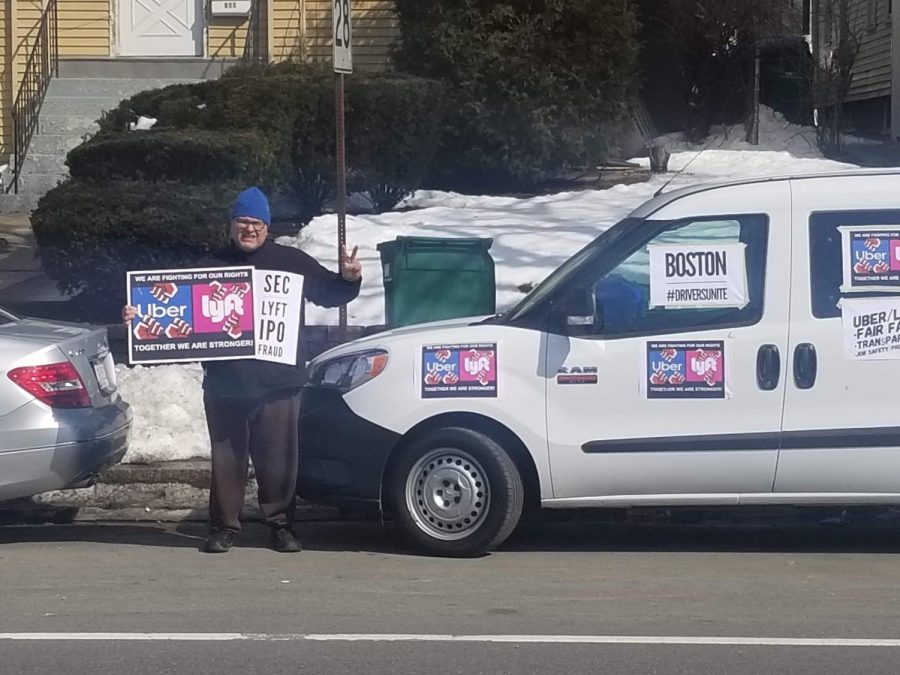
“It really hit drivers particularly hard when the companies dropped the rates,” Liss-Riordan said. “But the real harm to the drivers is that these companies are completely ignoring their responsibilities under our employment laws,”.
Many drivers, however, do not want to speak about the problems they encounter due to fear of retaliation.
“When we filed our bill,” Martinez said. “43 people out of 50 did not want to share their names.”.
Right now, the biggest fear of the Boston Drivers Guild — who is independently funded by the drivers themselves — is that Uber and Lyft are going to come to Massachusetts and spend millions of dollars to stall the bill.
In 2019, a set of rideshare companies spent a total of $200 million in California to enforce Prop 22, a ballot measure to establish drivers as independent contractors, and prevent their reclassification as employees. Their campaign message hinged on limited survey data saying most drivers want to remain independent contractors.
“These companies are selling this lie to gain support for keeping the drivers as independent contractors,” said Liss-Riordan.
Uber and Lyft, she said, have been “spreading a myth that the only way the drivers can have flexibility is by being an independent contractor.”
“It’s really scary that they are going to try this Prop 22 program [in Massachusetts] so that they can continue profiting over exploitation of drivers,” said Liss-Riordan. According to Liss-Riordan, if the program is enforced, then the workers won’t have any kind of protections.
While the lawyers are fighting against rideshare companies’ Prop 22 clone, Boston Drivers Guild is trying to gather support from lawmakers for their own bill and seek out grants to keep the organization afloat. In doing so, they are faced with a myriad of challenges, including the fact that they cannot form a union.
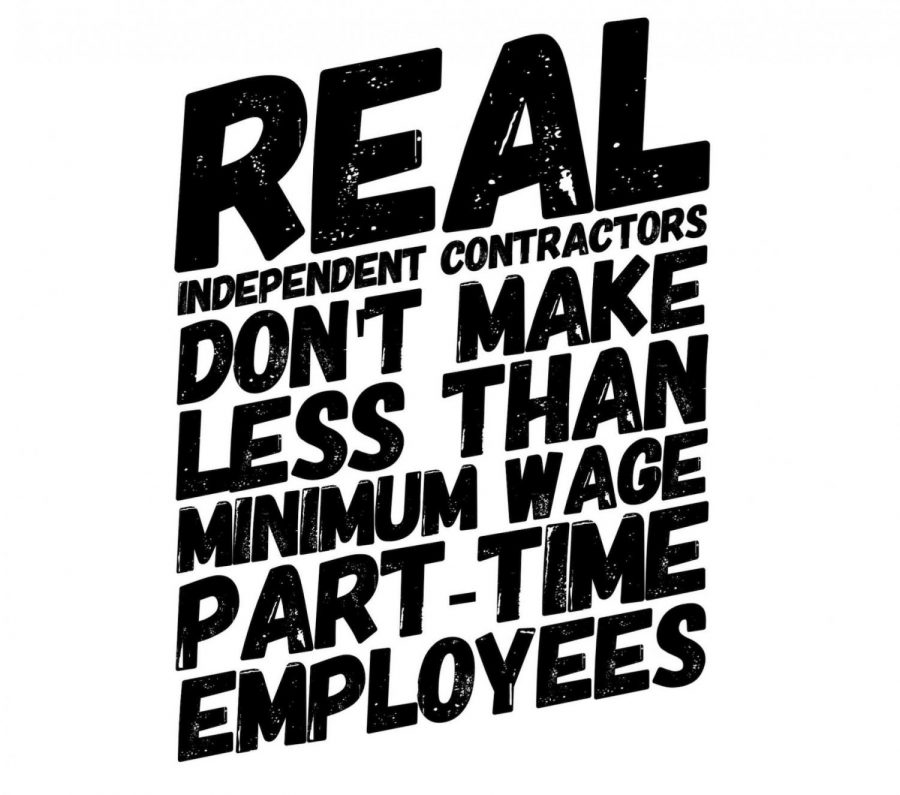
For the Boston Drivers Guild to form a union and successfully secure grants, they need to be recognized as employees.
“We are trying to apply for grants but then again, we are a driver-led organization. Drivers with barely a high school education trying to help other drivers,” said Martinez.
Despite the struggles, they have managed to make significant progress in their fight. In the beginning of the pandemic, the Guild held a rally at the State House and spoke with Attorney General Maura Healey, explaining that drivers lack any employment benefits, regardless of the current health crisis.
Two months later, Healey sued Uber and Lyft for misclassifying their drivers as independent contractors instead of employees under the 2004 Massachusetts Wage and Hour Law.
On March 25, Suffolk Superior Court Judge Kenneth W. Salinger denied Uber and Lyft’s motion to dismiss the lawsuit on the grounds that Uber and Lyft drivers are employees under Massachusetts Wage and Hour Laws.
Healey issued a statement in response to the decision, “The court plainly rejected Uber and Lyft’s latest attempt to deprive their drivers of basic protections that help them earn a living wage, including minimum wage, overtime, and earned sick time.”
“We are the drivers, we need to be part of the equation. [The rideshare] companies don’t speak for us,” said Martinez.
The main goal of Boston Drivers Guild is to form a union, fight for their rights and give voice to drivers, especially the ones who are afraid to speak for themselves.
“I’m not giving up until the drivers are unionized. I am not giving up until the drivers have their voice. I am not giving up until [drivers have their] fair say at the State House in public opinion,” Martinez said.“We know that money moves stuff, but we have a very large voice, and it matters.”





